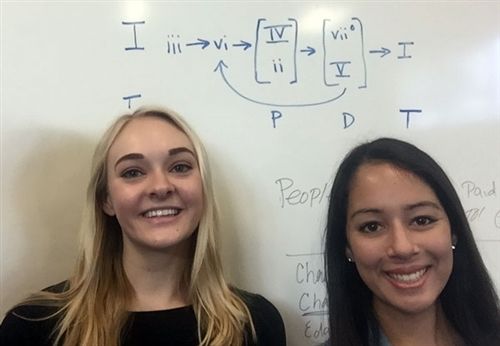

Project-Based Learning in Upper School Music Theory Honors
Source/Author: Shannon O, sophomore
May 05, 2016
Many classes assess the knowledge of their students at the end of the year by means of a cumulative final exam. But students in the Upper School Music Theory Honors class were challenged to do something different. In lieu of a written final exam, the students were assigned a final musical project that would count for a large percentage of their semester grade.
In accordance with teacher Ethan Updike’s philosophy advocating project-based learning, the Music Theory students were given the task of writing their own compositions. They spent the majority of the quarter writing these pieces and then peer-reviewing each other’s compositions.
This project was similar to a final exam in that it tested the students’ knowledge of the material, but it gave the students the opportunity to apply and present the knowledge they acquired in a more tangible form.
In accordance with teacher Ethan Updike’s philosophy advocating project-based learning, the Music Theory students were given the task of writing their own compositions. They spent the majority of the quarter writing these pieces and then peer-reviewing each other’s compositions.
This project was similar to a final exam in that it tested the students’ knowledge of the material, but it gave the students the opportunity to apply and present the knowledge they acquired in a more tangible form.
The project required the students to:
- select a key signature, time signature, and structure
- create a chord progression
- write a melody
- add non-chord tones (a type of embellishment)
- compositions had to have three sections: the exposition, the development, and the recapitulation.
- each section had to contain at least 16 measures, adding up to a total of 48, so each piece was roughly two minutes long.
You can listen to two student compositions by clicking on the links below:
























